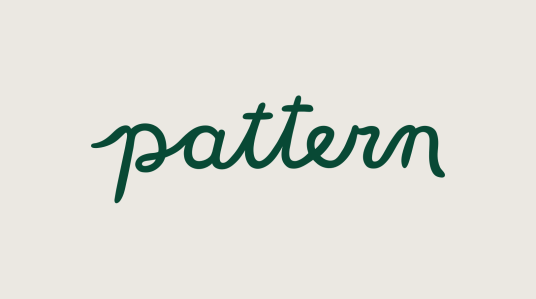A brand is a voice and a product is a souvenir

Trader Joe’s Dark Chocolate Pretzel Slims are absolutely delicious. They are a devilishly perfect blend of sweet, salty, chocolate, and guilt. But there’s also a dark secret (pun intended) behind these snacks: Trader Joe’s actually doesn’t make them. Snack Factory does. They are a rebranded copy of Snack Factory’s Pretzel Chips.
 This is actually a common practice in all of retail for a single manufacturer to produce the same product for multiple brands. Duracell manufacturers their own brand of batteries but also makes Costco’s Kirkland Batteries. Sara Lee bakes their own brand of bread, but also bakes Walmart’s Great Value bread. ColourPop makes their own brand of popular affordable lipstick, but also creates Kylie Jenner’s popular affordable lipstick brand. Menu Foods produces pet food for over 100 different brands from Iams, Eukanuba, Hill’s, Ol’ Roy, and more who all create directly competing products that happened to be made at the same place by the same people. But are these same products actually the same?
This is actually a common practice in all of retail for a single manufacturer to produce the same product for multiple brands. Duracell manufacturers their own brand of batteries but also makes Costco’s Kirkland Batteries. Sara Lee bakes their own brand of bread, but also bakes Walmart’s Great Value bread. ColourPop makes their own brand of popular affordable lipstick, but also creates Kylie Jenner’s popular affordable lipstick brand. Menu Foods produces pet food for over 100 different brands from Iams, Eukanuba, Hill’s, Ol’ Roy, and more who all create directly competing products that happened to be made at the same place by the same people. But are these same products actually the same?
Going back to Trader Joe’s Chocolate Pretzel Slims, food blog Eater.com ran a taste test between Chocolate Pretzel Slims and Snack Factory’s Pretzel Chips. Customers actually preferred the Trader Joe’s version by a wide margin, nearly 2-to-1. Again, these are the same physical products with the same ingredients as Snack Factory produces them both, yet customers clearly preferred one over the other. Why? Because these same products aren’t actually the same product. What’s different is the brand, and it turns out that makes all the difference.
Brands matter in business. A lot. In a 2018 report, Interbrand estimated what were the Top 25 most valuable brands in the world and the dollar value of those brands — not the business, just the brand. Apple came in #1 with a brand worth $214 billion dollars. Again, that’s not the value of the iPhone product or their App Store revenue or any other part of their business. Just the Apple name, Apple logo, and Apple brand was worth $214 billion, or more than 20% of their total market capitalization. The Coca-Cola brand was estimated to be worth $66 billion, or 33% of the total market cap of Coke. And the BMW brand, worth $41 billion, accounted for a staggering 66% of the total market cap of BMW. Another way to think of that is the BMW brand is the single most valuable asset in the entire company, worth more than the manufacturing plants, the intellectual property, all the products, and all the cars combined. The brand is what has the most value. Which is why when the Kleiner Perkins partnership met Nick Ling, Emmett Shine, and the Pattern Brands team, we knew we had to be a part of the new company they were creating.
 In their own words, Pattern Brands is a new "multi-brand consumer goods company owned and operated under one roof, with each of its brands working together toward one mission: to help our generation find more enjoyment in daily life". The company was born out of renowned design agency Gin Lane, behind the design of over $15 billion dollars of brand value including hit companies like Hims, Sweet Green, Harry’s, Smile Direct Club, and more. In other words, this is a team that doesn’t just understand brands, they understand how consumers and companies interact, converse, and come together around shared values to create not just a brand, but rather an iconic brand. Now with Pattern Brands, the Gin Lane team will be able to have those conversations with customers directly around their own brands, starting first with Equal Parts, a new innovative take on cookware launching this fall. And that’s just the start.
In their own words, Pattern Brands is a new "multi-brand consumer goods company owned and operated under one roof, with each of its brands working together toward one mission: to help our generation find more enjoyment in daily life". The company was born out of renowned design agency Gin Lane, behind the design of over $15 billion dollars of brand value including hit companies like Hims, Sweet Green, Harry’s, Smile Direct Club, and more. In other words, this is a team that doesn’t just understand brands, they understand how consumers and companies interact, converse, and come together around shared values to create not just a brand, but rather an iconic brand. Now with Pattern Brands, the Gin Lane team will be able to have those conversations with customers directly around their own brands, starting first with Equal Parts, a new innovative take on cookware launching this fall. And that’s just the start.
Lisa Gansky once said about the importance of brands in business: "A brand is a voice and a product is a souvenir". Another way to think about that concept is that consumers use products, but they brand is what catches their attention, draws them in, sells them, and speaks to them. We can’t wait to hear what Pattern Brands has to say.